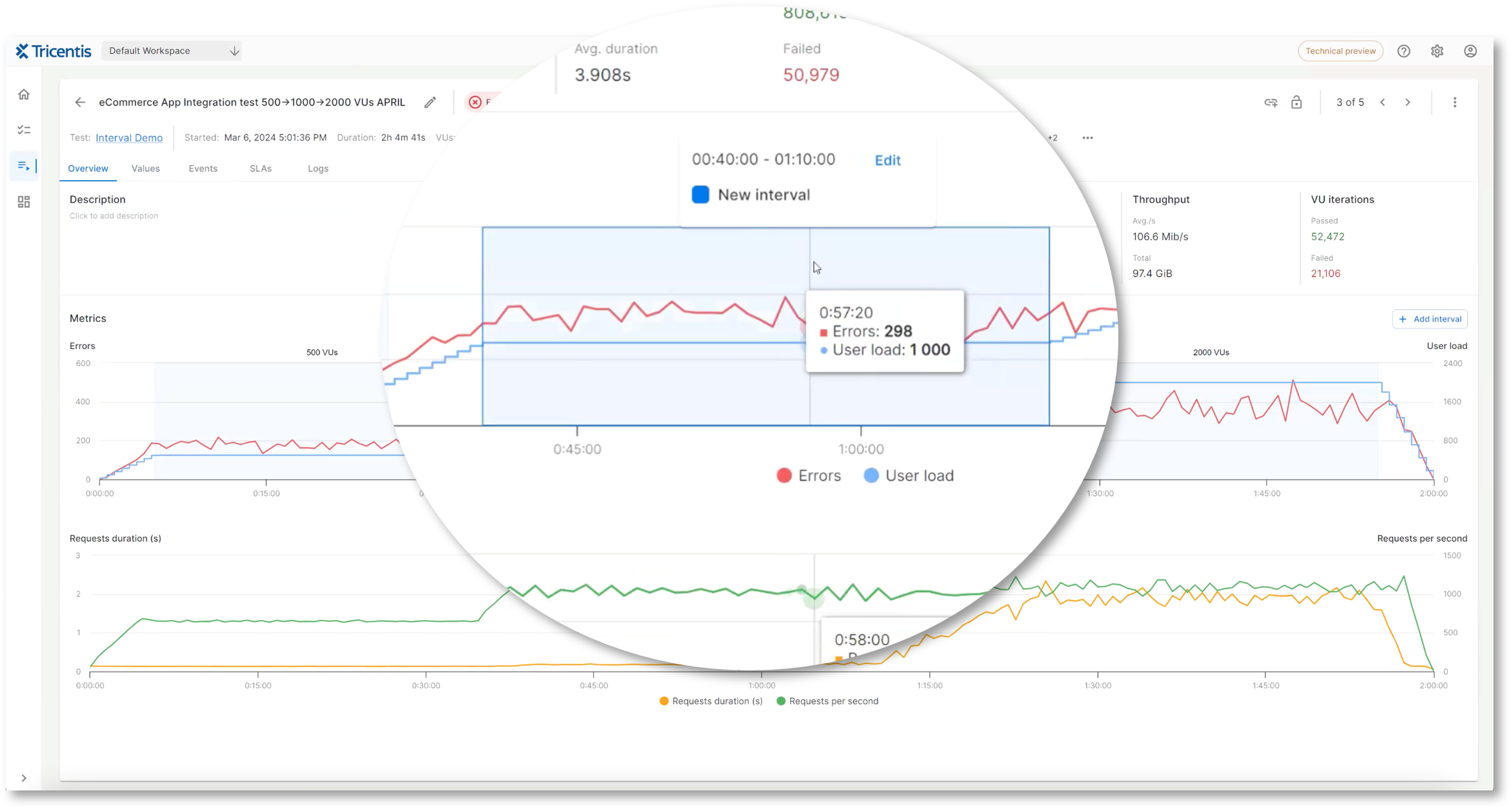This release focuses on the addition of support for several new technologies, as well as the initial release of a fundamental modernization effort we have been implementing on the NeoLoad web platform.
Next generation NeoLoad Web
As technology evolves, so too must your testing solutions. NeoLoad Web was already a modern platform, but there were some limitations that needed to be addressed. We are pleased to announce the general availability of the next generation of NeoLoad Web, available today for all SaaS customers of NeoLoad at https://neoload-v2.saas.neotys.com/. There are several major design enhancements made in this release:
- Design standardization with other Tricentis software solutions, so that if you use one of our other solutions, picking up NeoLoad will be extremely comfortable and familiar with a consistent user experience.
- A robust expansion of the V4 API to cover all aspects of NeoLoad Web, including functionality previously not available in the V3 API.
- Reporting enhancements and new reporting capabilities
- The technical preview of the new Augmented Analysis engine for automated results analysis.
What is Augmented Analysis?
As artificial intelligence platforms continue to evolve, we are pleased to announce that Augmented Analysis – a machine-learning AI engine – is part of the new NeoLoad Web architecture. The initial release of augmented analysis is focused on the RED statistics (Rate, Error, and Duration) that we know for certain are part of every performance test result set, and intended to provide not only guidance on which portions of your test results are important and should be subjected to further analysis, but also to provide detailed explanations on why NeoLoad is making the recommendations that it is providing. While initially designed to provide guidance on where a performance engineering team should focus their attention, subsequent phases of Augmented Analysis (and upcoming features that are part of what we are calling Augmented Design) will begin to include NeoLoad project and APM data, and provide an increasingly robust analysis framework that your teams will be able to use to accelerate and elevate their performance engineering practices.

Does this mean the current NeoLoad Web interface we have been using will be discontinued?
Absolutely not! We will continue to maintain both versions of NeoLoad Web for some time, to ensure that no disruption to any testing activities occurs. However, as architecturally, the new NeoLoad Web front-end is merely a new container stack talking to the same back-end container stack already deployed, our customers will be able to seamlessly switch between interfaces as they see fit. All your user credentials, NeoLoad projects, and test results will be visible in both versions of NeoLoad Web as a result, and any changes will be instantly visible in the other platform. For example, starting a test in one and then switching to the other will show the test setting up and executing in real time.
SAP RFC support
When integrating other applications into your SAP platform, customers often need to tie ABAP processes to other components of SAP or third-party systems. Remote Function Calls (RFC) support in NeoLoad allows us the capability to drive performance engineering activities to validate the integration points between and within SAP systems by invoking the function calls in a reliable and scalable fashion. This allows performance engineering teams to now simulate the functionality of other systems as it interfaces with SAP, or to mimic the functionality of the SAP system as it interacts with third- party systems that have been connected to SAP, ensuring that scalability and reliability of the implemented connectivity will hold up under production usage and that your SAP deployment continues to operate flawlessly.
SAP IDoc support
When exchanging information between SAP and other integrated systems, a common data framework is essential to ensuring the data is structured in a reliable way. The SAP IDoc (Intermediate Document) protocol is commonly used when exchanging orders, invoices, delivery schedules, and material master data sets between SAP systems and other platforms. NeoLoad’s ability to support IDoc data formats allows for a seamless way to performance test the consumption of IDoc datasets into SAP and the distribution of data from SAP to other systems, ensuring that there are no delays or data issues under production load, and thus ensuring the performance of your SAP environment remains highly scalable and reliable.

TN5250 support
While 2024.3 introduced the new RTE protocol into the NeoLoad framework, support for 5250 was not included. We are pleased to close this gap with the release of 2025.1 and support for the TN5250 remote terminal emulation protocol. This allows performance engineers to now emulate traffic into and validate the performance of their AS/400 systems. This ensures that as functionality continues to be exposed to new workloads via internet accessible functionality, your AS/400 system will continue to operate without any performance degradation.
We are pleased to release NeoLoad 2025.1, further deepening our support for SAP and RTE environments and beginning to release the architectural enhancements we have been making in the background to modernize our performance engineering platform. If you are eager to learn more, feel free to register for our upcoming webinar to learn more about this exciting release.
*While both RFC and IDoc support will currently be available across all NeoLoad editions in NeoLoad 2025.1, as we develop additional enhancements and capabilities in upcoming iterations, availability will become part of specific edition packaging. At that time, accessibility to RFC and IDoc will be included only for NeoLoad customers who meet the to-be-defined edition packaging criteria